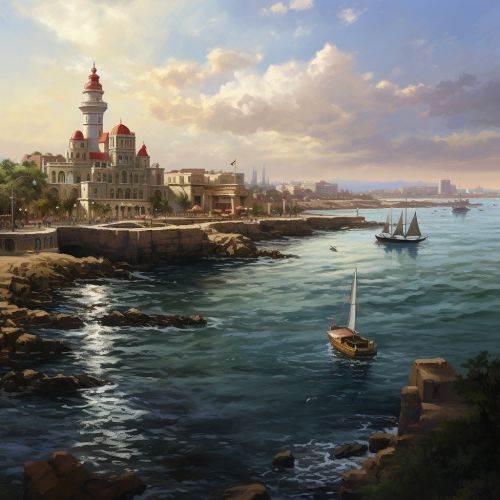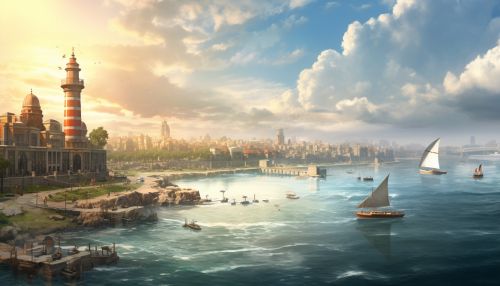Alexandria
History
Alexandria, the second-largest city in Egypt, is known for its rich history. Founded by Alexander the Great in 331 BC, the city was once considered the crossroads of the world. Many of the most famous buildings in the world, such as the Lighthouse of Alexandria, were built in this city. The lighthouse, one of the Seven Wonders of the Ancient World, stood at approximately 450 feet tall and was a marvel of ancient engineering.


The city was also home to the ancient Library of Alexandria, one of the largest and most significant libraries of the ancient world. The library was part of a larger research institution called the Mouseion, which was dedicated to the Muses, the nine goddesses of the arts. The library and the Mouseion were centers of study and research and attracted scholars from all over the Hellenistic world.
Alexandria was also the setting for the stormy relationship between Cleopatra, the last queen of Egypt, and Mark Antony, the Roman politician and general. Their love story ended tragically, with both committing suicide after their defeat by Octavian, the future Augustus Caesar, in 30 BC.
Geography
Alexandria is located in the north-central part of Egypt, on the Mediterranean coast. It is approximately 225 kilometers north of Cairo, the capital of Egypt. The city is known for its picturesque beaches and its bustling harbor, which is one of the busiest in the world.
The city's climate is a hot desert climate, but it is significantly cooler than most other cities in Egypt due to the Mediterranean Sea's moderating influence. Summers are hot and humid, while winters are mild and wet.
Economy
Alexandria's economy is one of the most dynamic in Egypt and the Middle East. The city is an important industrial center because of its natural gas and oil pipelines from Suez, another city in Egypt. Alexandria is also a popular tourist destination, with many hotels, restaurants, and historical sites.
The city is also a major center for maritime trade and transportation. Its harbor serves as the primary shipping gateway between Egypt and the rest of the world, handling millions of tons of cargo each year. The city's economy is also boosted by its status as a free-trade area in Egypt.
Culture
Alexandria has a rich cultural history, with influences from Greece, Rome, and the Arab world. The city was a major center of Hellenistic civilization, and it was home to many famous scholars and philosophers, including Euclid, the father of geometry, and Hypatia, the first known female mathematician.
The city is also known for its many cultural institutions, such as the Bibliotheca Alexandrina, a modern library and cultural center that was built near the site of the ancient Library of Alexandria. The library has shelf space for millions of books, an internet archive, and several museums.
Alexandria is also home to the Alexandria Opera House, which hosts musical performances and cultural events throughout the year. The city's cultural scene is further enriched by its many art galleries and museums, such as the Alexandria National Museum, which houses a vast collection of Egyptian antiquities.
